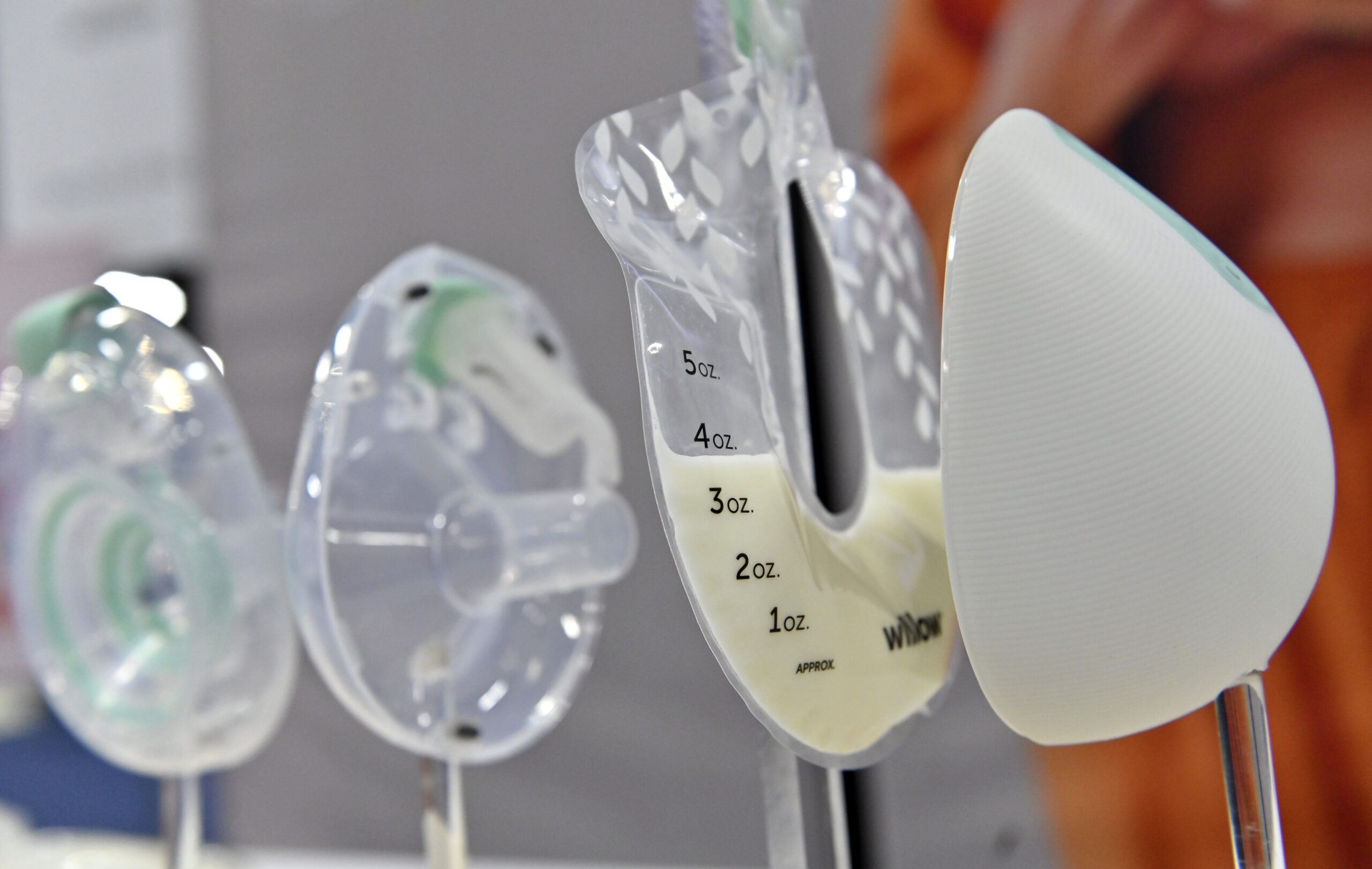The PUMP Act is now in full effect. That means more women can take the necessary time to pump in a private, clean workspace. Initially, the act was introduced in 2021 but grew popular during the baby formula shortage. The PUMP Act was implemented in phases to allow employers to adjust to the new requirements: a private and secure, clean station for employees to pump, sinks, fridges and more.
PUMP Act Allows More Rights For Breastfeeding Moms
Sterling Grey-Simmons is a certified breastfeeding specialist, doula, owner of Loyal Lactation, and mother. She understands the importance of the PUMP Act going into full effect. Grey-Simmons assists future and current nursing moms with navigating pumping at work with more rights implemented.
All industries must now allow their nursing employees to pump milk when needed and for longer times.
“This act covers people who weren’t covered previously, so like teachers, nurses, farmers…people like that. They’re now under the umbrella that is allowed to utilize the act. Prior to, they were left out, but now it’s broadened,” Grey-Simmons said.
The PUMP Act going into full effect, also allows mothers to continue breastfeeding after the baby turns a year old.
“Previously, moms could only breastfeed until their baby turned one. Now, they can go up to two years, which is better for the baby,” Grey-Simmons explained.
The New York Times details how breastfeeding rates decrease when moms return to work. More than 80% of babies are breastfed when born, but only 56% are breastfed by six months. According to the National Library of Medicine, working mothers with adequate time and space to pump are 2.3 times more likely to breastfeed at six months than those without such access exclusively. Grey-Simmons expects to see numbers increase now that more rights for nursing mothers in the workplace have been implemented.
Mom Needs Time to Prepare
Grey-Simmons stresses that going back to work doesn’t allow enough time for the moms to prepare for milk regulation or the baby to latch correctly.
“If you think about it, you have moms going back to work as early as two weeks postpartum. They don’t have time to prepare. In the U.S., you can’t sell puppies before eight weeks, but some employers expect you back in two to four weeks. It’s crazy,” Grey-Simmons said.
Additionally, the doula advises all mothers to speak to their employer’s human resources department prior to going on maternity leave in order for both parties to prepare.
“I tell all my clients to have a conversation before going out. Don’t wait until after you return from maternity leave. This way they can have accommodations ready upon your return,” she said.
Resources for Mothers and Employers
Grey-Simmons believes employers shouldn’t be afraid to seek additional resources for their nursing employees. For instance, Healthy Horizons assists employers with setting up lactation rooms.
“The way employers have nurses, it would be great if they had experts on hand that can help nursing mothers or even provide equipment if the mothers forget their bags or something to put milk in,” Grey-Simmons said. “Healthy Horizons is one company that helps employers help moms. They come and design these [lactation] rooms that have everything a mother needs.”
